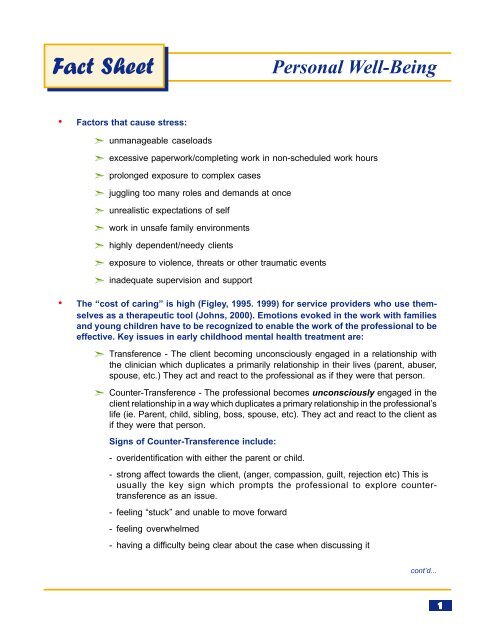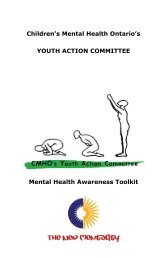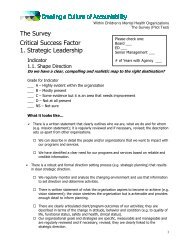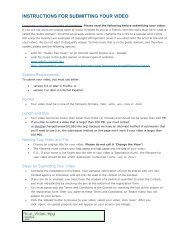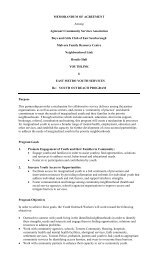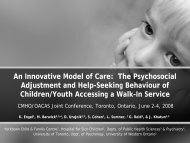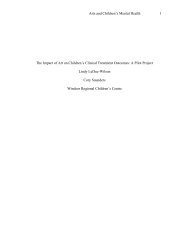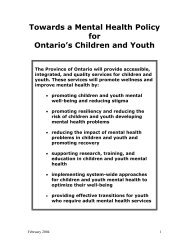Early Childhood Mental Health Treatment: Training Reference Guide
Early Childhood Mental Health Treatment: Training Reference Guide
Early Childhood Mental Health Treatment: Training Reference Guide
Create successful ePaper yourself
Turn your PDF publications into a flip-book with our unique Google optimized e-Paper software.
Fact Sheet<br />
Personal Well-Being<br />
• Factors that cause stress:<br />
unmanageable caseloads<br />
excessive paperwork/completing work in non-scheduled work hours<br />
prolonged exposure to complex cases<br />
juggling too many roles and demands at once<br />
unrealistic expectations of self<br />
work in unsafe family environments<br />
highly dependent/needy clients<br />
exposure to violence, threats or other traumatic events<br />
inadequate supervision and support<br />
• The “cost of caring” is high (Figley, 1995. 1999) for service providers who use themselves<br />
as a therapeutic tool (Johns, 2000). Emotions evoked in the work with families<br />
and young children have to be recognized to enable the work of the professional to be<br />
effective. Key issues in early childhood mental health treatment are:<br />
Transference - The client becoming unconsciously engaged in a relationship with<br />
the clinician which duplicates a primarily relationship in their lives (parent, abuser,<br />
spouse, etc.) They act and react to the professional as if they were that person.<br />
Counter-Transference - The professional becomes unconsciously engaged in the<br />
client relationship in a way which duplicates a primary relationship in the professional’s<br />
life (ie. Parent, child, sibling, boss, spouse, etc). They act and react to the client as<br />
if they were that person.<br />
Signs of Counter-Transference include:<br />
- overidentification with either the parent or child.<br />
- strong affect towards the client, (anger, compassion, guilt, rejection etc) This is<br />
usually the key sign which prompts the professional to explore countertransference<br />
as an issue.<br />
- feeling “stuck” and unable to move forward<br />
- feeling overwhelmed<br />
- having a difficulty being clear about the case when discussing it<br />
cont’d...<br />
1


